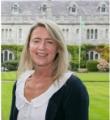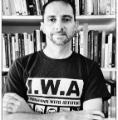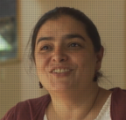In This Section
- Home
- About Us
- Research
- Research Clusters & Working Groups
- Ageing
- Children and Young People
- Research for Civil Society, Environment and Social Action (REACT)
- Genders, Sexualities and Families
- Disability and Mental Health
- SHAPE
- CARE21
- Migration and Integration
- Poverties, Social Justice and Inequalities
- Gender and the Academy Research Working Group
- Crime and Social Harm (CSH)
- Populism and the Rise of the Far-right
- Work, Organisations and Welfare
- TRANSS UCC Working Group
- News and Events
- People
- Events
- Join Us
Securitised Borders: Human Security Migrant Mobilities & Resistance

Webinar hosted by:
ISS21 Migration and Integration Research Cluster
23rd Sept, 11.30–4pm
To join this online seminar please click HERE
Border externalisation in the form of land and sea surveillance, the erection of walls, offshore detention, accelerated deportations and increasing hostility towards people seeking protection/security, have become deeply entrenched in a politics of border enforcement both in the EU and across the globe. The EMBRACE project, an IRC funded research project, places a focus on the frontiers of border militarisation, with a specific focus on the EU Mediterranean border and the Mexican border. This event explores border shifts and the related impact on the everyday lives of migrants, refugees and those seeking protection/security both inside and outside of their country of origin. The event brings together academics, civil society organisations and activists working in the field of migration.
Speakers
Keynote: Dr Maurice Stierl (Institute for Migration Research and Intercultural Studies, Osnabrück University)
Professor John Morrissey, Associate Director of NUIG's Moore Institute, NUIG
Noorain Ahmed, Humanitarian Architect, India
Alex Noppel, Film Maker, Germany/Mexico
Laura Alejandra Elizalde, Coordinator of the Gender and Migration Program, Mexico
Karina Breceda, Executive Director of New Wave Feminists Consistent life Centre, MX
Dr Claire Dorrity, School of Applied Social Studies, University College Cork
Hamza Bessioud, IPA Switxboard, Tunisia
Event Programme |
|---|
| 11.30am - Welcome by Chair: Dr Mastoureh Fathi, UCC 11.35am - Opening Remarks: Dr Piaras MacEinri, ISS21 Migration and Integration Research Cluster & Geography Department, UCC 11.45am - Dr Claire Dorrity – School of Applied Social Studies, ISS21 M&I research Cluster, Centre for Global Development Steering Committee, UCC 12.05am –Hamza Bessioud, Switxboard Innovation and Planning Agency (IPA), Tunisia 12.25am - Keynote Address: Dr Maurice Stierl, Institute for Migration Research and Intercultural Studies, Osnabrück University 13.05pm - Q&A
Break 1.30 – 1.55pm
1.55pm – Opening of Afternoon Session – Chair: Professor Nuala Finnegan, Head of the Department of Spanish, Portuguese and Latin American Studies and Director of the Centre for Mexican Studies, UCC 2.00pm - Prof John Morrisey, Professor of Geography, NUI, Galway 2.20pm - Noorain Ahmed, Humanitarian Architect, India 2.40pm - Karina Breceda, Executive Director of New Wave Feminists Consistent life Centre (08.40am Mexican Time) 3.00pm - Alex Noppel - Film Director and Laura Alejandra Elizalde, Coordinator Of the Gender and Migration Program, Mexico /Guatemala Border NGO (9am Mexican Time) 3.30pm - Q&A 3.55pm - Closing remarks Please note this seminar will be part-recorded and made available to the EMBRACE project. By attending the event, you are consenting to being recorded. |
| Participant Bios & Abstracts |
|---|
| Keynote Address: Dr Maurice Stierl
Dr Maurice Stierl leads the research group “The Production of Knowledge on Migration” at the Institute for Migration Research and Intercultural Studies, Osnabrück University. Prior to this, he was a lecturer in International Relations at the University of Sheffield. He has also taught at the University of Warwick and the University of California, Davis. His research focuses on migration struggles in contemporary Europe and (northern) Africa and is broadly situated in the fields of International Political Sociology, Political Geography, and Migration, Citizenship and Border Studies. His book ‘Migrant Resistance in Contemporary Europe’ was published by Routledge in 2019. Title and Abstract: What can critique of border violence still do? In the name of border ‘protection’ we currently witness dramatic escalations of violence along the borders of Europe. Especially along the maritime migration routes to the EU, forms of abandonment, abduction, and expulsion have become daily occurrences. Due to the engagement of activists and other non-state actors, many of these forms of violence have become exposed and documented over recent years, perpetrators identified. Nonetheless, border crimes continue to happen and, arguably, in some regions even with greater systematicity. As an invitation to further discuss during the workshop, I want to reflect on what remains of our potential to critique when the production of ever-more evidence of border crimes seems disconnected from material and political transformation. |
| Professor John Morrissey
Research interests are in geopolitics, security, and international development. He is a former Government of Ireland Research Fellow, which he spent at the Center for Place, Culture and Politics at CUNY Graduate Center in New York. He was nominated for a Fulbright US Institute Scholar Award on US Foreign Policy at the University of Florida. He is a past Quatercentenary Fellow at Emmanuel College, Cambridge and also Fellow of Fitzwilliam College, Cambridge. He has held additional research fellowships at Virginia Tech, the University of Oxford, and Australian National University. Key areas of research include the geopolitical and biopolitical dimensions of contemporary US national security interests in the Middle East, with a particular focus on United States Central Command (CENTCOM). The Long War, a critical history of CENTCOM, documenting the ongoing imperial interventions of the command, was published by University of Georgia Press in 2017 and shortlisted for the Julian Minghi Prize. His current research is concerned with critically theorising human security and securitization in the wake of COVID-19 and wider global human-environmental crises. In 2021, he was appointed International Consultant on Human Security in the Human Development Report Office (HDRO) of the United Nations. In 2015, he was appointed Associate Director of NUIG's Moore Institute. He served as Head of the School of Geography and Archaeology for 2017/18, won the President's Award for Teaching Excellence for a second time in 2018, and was promoted to Personal Professor in 2020. Title and Abstract: In the Ruins: Human-Environmental Security in the Anthropocene This paper considers a key securitization challenge the world faces in the aftermath of COVID-19: envisioning an interconnected sense of human-environmental security for the Anthropocene. It is a challenge that centres on discursively setting out the kind of security required in tackling a wide set of human-environmental crises unfolding on the planet as we live through the ruins of late modern capitalism. In seeking to reframe and re-resource strategies of security, the paper conceptualizes a conjoined sense of human-environmental security, which extends the UN’s human security concept to address more holistically the multiple overlapping precarities of our human and non-human worlds. It reflects on the task of moving beyond a concern for human precarity to a concern for a broader sense of planetary precarity and considers the challenge of activating the legal and regulatory mechanisms that are necessary to transcend prevailing econocentric and statist conceptualizations of security. |
| Noorain Ahmed
An architect, illustrator and educator with over 10 years of experience in the development and humanitarian sector, Noorain has worked and taught in the fields of transitional and low cost housing, participatory development, visual storytelling and social innovation. An advocate of the systems thinking approach, she has transitioned to the field of forced migration and urban refugee response in developing countries, working on cross-sectoral solutions to address mixed migration issues. At present she is facilitating state level strategies for poverty alleviation through clean energy livelihood solutions in North East India, as part of SELCO Foundations SDG 7+13 mandate. Abstract: What do our everyday lives look like? How might those routines play out differently for those caught in places due to border securitisation? How are daily chores, work life, transport, child-care, education, healthcare, entertainment, and social interaction experienced on a daily basis by refugees & migrants? This session attempts to give a glimpse into such experiences, drawing from observations in the southern part of Tunisia, which is home to mixed migrant populations from sub-Saharan Africa as well as Tunisian migrant returnees from Europe. The insight looks to raise questions on the scope and scale of interventions required to address the everyday gaps and challenges, who these might involve and what they may look like. |
| Dr Claire Dorrity
Claire is a lecturer in social policy, School of Applied Social Studies, UCC. Her research interests include Migration and Social Policy; Border Securitisation and Human Security; Critical Multiculturalism; and Migrant and Refugee. Representation and Integration. Her most recent research project EMBRACE: Exploring Mobility: Borders, Refugees & Challenging Exclusion (Irish Research Council New Foundations Program) focuses on frontiers of border militarisation, using two case studies - the EU Mediterranean and the US/Mexican border. She is a research associate with the Institute of Social Science in the 21st Century, UCC (ISS21) and committee member of the Migration and Integration Research Cluster. She is joint editor of Migration: Global Processes Caught in National Answers (Nova 2014) and co-editor of Social Professional Activity: The Search for a Minimum Common Denominator in Difference (Wiener Verlag, 2009). Abstract: This presentation will provide an overview of the EMBRACE Project, an IRC research-funded project, which focuses on the frontiers of border militarisation, within a Mexican and EU context. Drawing on two recent research visits to Mexico and Tunisia in March and May 2022, the presentation will discuss some of the complexities associated with movement across borders, highlighting the transnational nature of movement, the multi-layered challenges experienced by migrants, and the selective nature of who can and who cannot move across borders. Most specifically, it will speak to the importance of innovative, connected, and participative responses that prioritise migrant autonomous principles and structures, including the activism within migrant organisations at the borders. |
| Karina Breceda
Executive director of New Wave Feminists Consistent life Centre. Karina is a Fronteriza human rights advocate. She works in a shelter / medical clinic hybrid, working on both sides of the border of Ciudad Juarez, Mexico and El paso, Texas. She has spent the last year coordinating migrant shelters and developing programs that are multidisciplinary in consistent life ethics and responsive to the current migratory needs. She is the co-founder of New Wave Feminists Consistent Life Ethic Centre in Ciudad Juarez Chihuahua Mexico serving the needs of women on the border. She previously worked as coordinator of the San Juan Apóstol y Evangelista Shelter, Ciudad Juárez. Abstract: This presentation will examine ethics of consistent life and its application in immigration issues. |
| Alex Noppel
Born in Mexico City in 1976. In 1999, he graduated in Communication Science at the UIA and in the same year he made his first documentary film, A.U.N.S.U.E.Ñ.O, which screened at the All Voices Against Silence Festival. In 2000, he established his first independent production project, Produciendo bajo el árbol, where he began his work as documentary film and video installation director. He completed his masters degree in in Creative Documentary Filmmaking at the Universidad Autónoma de Barcelona in 2001 with his final work was aired on Catalonian television and instructed in a video project made by children in El Raval, an immigrant neighbourhood in Barcelona. On return to Mexico in 2005, he co-founded Ozumedia, where he worked as a director of documentaries and video installations. He also founded the event series Tina Perversa, which deals with art, music, and fashion. His feature film as a director, ‘Victorio’ won the Best Opera Prima Award – Guanajuato International Film Festival GIFF 2008 and participated in the International Festival of New Latin American Cinema in Havana, Cuba, Santiago International Film Festival SANFIC 7, XXXI Mostra de Valencia and won the Audience Award at the International Festival FILME SOCIALAK Bilbao. In 2011, he won the Audience prize award in competing for “Best Unseen” and “Human Rights” film in the 3rd Bilbao International Unseen Film Festival and attended various forums and workshops including the Second Meeting of Social Audiovisual Communication in Bilbao, Spain 2011 where he participated in the round table "Filmmaking in Emerging and Impoverished Countries". In Berlin he was part of C43 (Colectivo en acción por Ayotzinapa) with whom he produced 5 documentaries denouncing the serious human rights violations in Mexico as well as directing a short film for the film produced by Amnesty International "Ayotzinapa 26". His latest short film "1/4 Ante Meridiem", which deals with the issue of child disappearances in Mexico, had its international premiere at the 44th Moscow International Film Festival and is currently in competition at the 20th Morelia International Film Festival. He is currently producing a feature documentary about pregnant migrant women on the southern border between Mexico and Guatemala and directing a documentary series about the web of oppressions, violence, migration and abuse in the coffee industry. Abstract: In this presentation Alex will speak about his work with women on the southern border, between Mexico and Guatemala, his latest short film dealing with child disappearances in Mexico, and his commitment to highlighting injustice, oppression and the human rights violations that lie behind our everyday cup of coffee. |
| Laura Alejandra Elizalde
Coordinator of the Gender and Migration Program, Formation and Training AC, Chiapas, Mexico. Graduated from the National School of Anthropology and History in the field of Ethnology, and Cultural Studies. She specialises in issues relating to gender, migration, interculturality and education. She currently coordinates the Gender and Migration Program at Formation and Training AC, a Chiapas non-profit organization with 25 years of experience in gender issues and women's rights in southern Mexico and the Mesoamerican region. She has participated in community groups and academic and artistic projects focused on the dissemination and promotion of cultural diversity in Mexico and Latin America and has engaged in local, regional, and national meetings relating to the development of ethnic, cultural, linguistic and gender diversity as well as the exercising of the human rights of women in Latin America. She is the author of several academic publications and research reports relating to the cultural and ethnic diversity and human rights. She has participated in the implementation of curricular design and development processes relating to intercultural and bilingual approaches for the care of indigenous populations and migrant agricultural workers, and educational outreach in in Mexico and Latin America. Abstract: Alexandra’s presentation will speak to the defence of women’s rights within migration processes on the Mexican/Guatemalan border. It will address the feminisation of migration and how the Formación y Capacitación A.C (Foca), gender and migration program is serving women, responding to specific need, addressing severe human rights violations, and providing spaces of solidarity for migrant women. The presentation will highlight key areas of focus in the organisation including health, advocacy, interactions with state organisations and providing solutions for those they seek to serve. |
| Hamza Bessioud
Hamza Bessioud is a senior coordinator on the migration programme at IPA (Innovation and Planning Agency) Switxboard. He previous work includes Regional Project Coordinator at Coffey International Development, Project Assistant at International Organisation of Migration (IOM) Project Coordinator at Search for Common Ground, and several positions at I WATCH. He has been managing and supervising staff in different roles in respected Organizations on humanitarian and development work for more than 9 years. He has designed several local, regional, and international programmes relating to humanitarian response, peace, and security. |
Institute for Social Science in the 21st Century (ISS21)
Contact us
Top Floor, Carrigbawn/Safari Building, Donovan Road, Cork, T12 YE30









